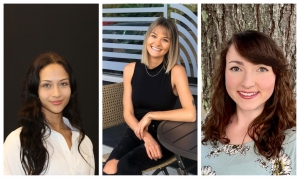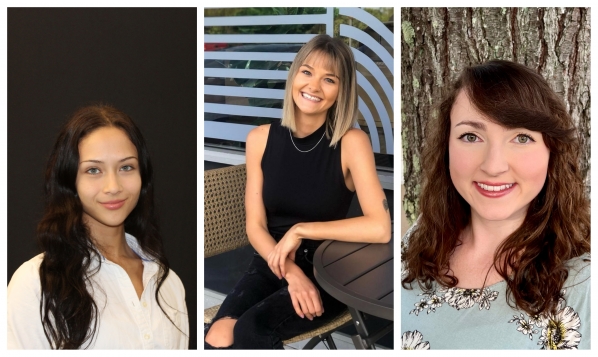The NBCC Foundation, an affiliate of the National Board for Certified Counselors (NBCC), recently selected Appalachian State University’s Isabel Anderson ’21, Danielle Capparelli, and Lindsay Sheek for the NBCC Minority Fellowship Program Addictions Counseling Fellowship. All three are graduate students in App State’s clinical mental health counseling (CMHC) program and addictions counseling graduate certificate, which are housed in the Reich College of Education.
As NBCC Minority Fellowship Program (MFP) Fellows, Anderson, Capparelli, and Sheek will receive funding, as well as training to support their education and facilitate their addictions counseling service to underserved populations. They are among 113 fellows selected from over 540 applicants to represent three cohorts of fellows: master’s-level mental health counseling, doctoral-level mental health counseling, and master's-level addictions counseling.
The NBCC MFP is made possible by a grant awarded to the NBCC Foundation by the Substance Abuse and Mental Health Services Administration (SAMHSA), and the NBCC Foundation also collaborates with NAADAC, the Association for Addiction Professionals, to administer the addictions counseling fellowship program.
The foundation plans to open the next NBCC MFP-AC application period in fall 2022. Learn more about the NBCC MFP and its fellows.
About App State’s MFP Fellows
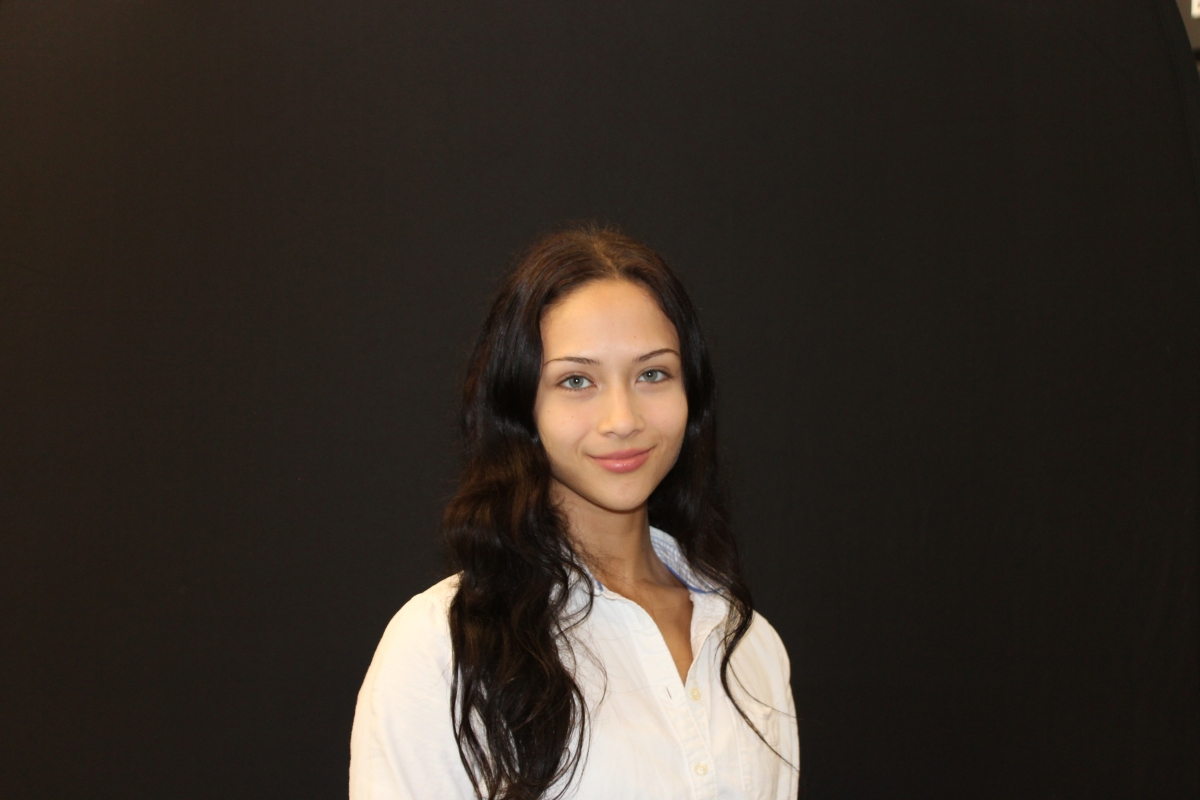
Isabel Anderson, originally from Reston, Virginia, received her bachelor’s degree in psychology with a concentration in human services from App State.
She chose to enroll in the clinical mental health counseling program because of its “holistic perspective” and “amazing faculty”.
“Receiving this award has allowed me to focus more fully on my education and volunteering rather than my financial situation,” said Anderson. “It has given me hope that people believe in the cause of serving the underserved and given me a great sense of pride for my future work.”
Because of the sense of community she felt and the experiences that she had with the faculty during her undergraduate years, Anderson feels “passionate about serving the population that lives here.”
After graduating, Anderson hopes to work with a nonprofit mental health organization specifically serving those with substance use disorder. She is passionate about helping the rural community and plans to stay in the High Country area for the foreseeable future.
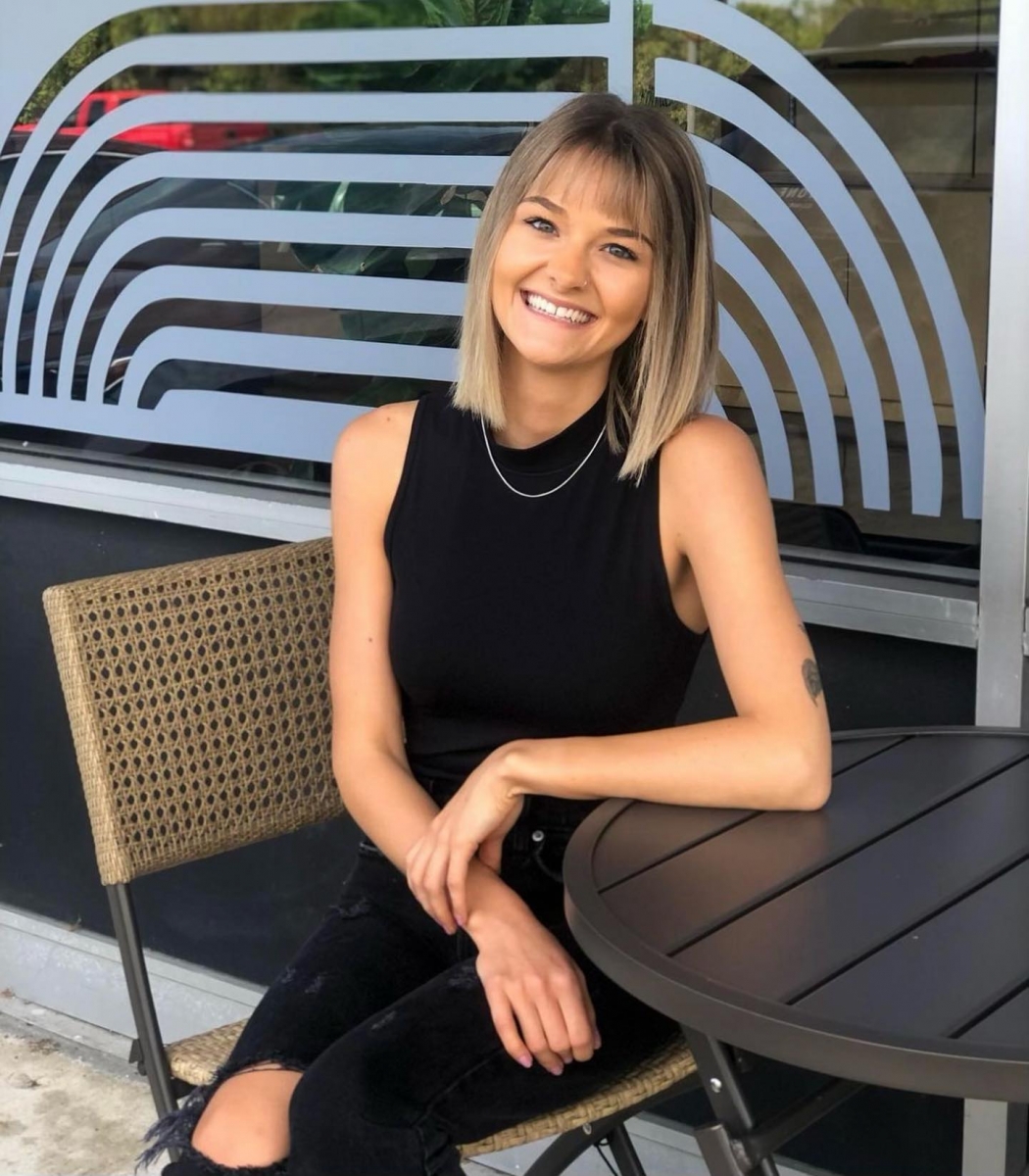
Danielle Capparelli, originally from Bradenton, Florida, received her Bachelor’s degree in psychology from Flagler College in St. Augustine, Florida.
Since middle school, Capparelli has known she wanted to be an addiction counselor. She chose to attend App State because she has a “passion for rural mental health counseling and addiction services” and her “personal experiences and academic interests aligned with App State’s dedication to diversity, inclusion, and social justice.”
“This fellowship has and will continue to further my professional goals, personal counselor identity, and passion for underserved populations,” noted Capparelli. “Receiving this award has been the greatest honor of my professional career and I look forward to learning and growing alongside other fellows.”
After graduating, Capparelli plans to work as an addiction counselor in a rural community mental health agency. As a life-long learner, she hopes to return to academia to receive her Ph.D. in counselor education and supervision so that she can help prepare the next generation of mental health counselors.
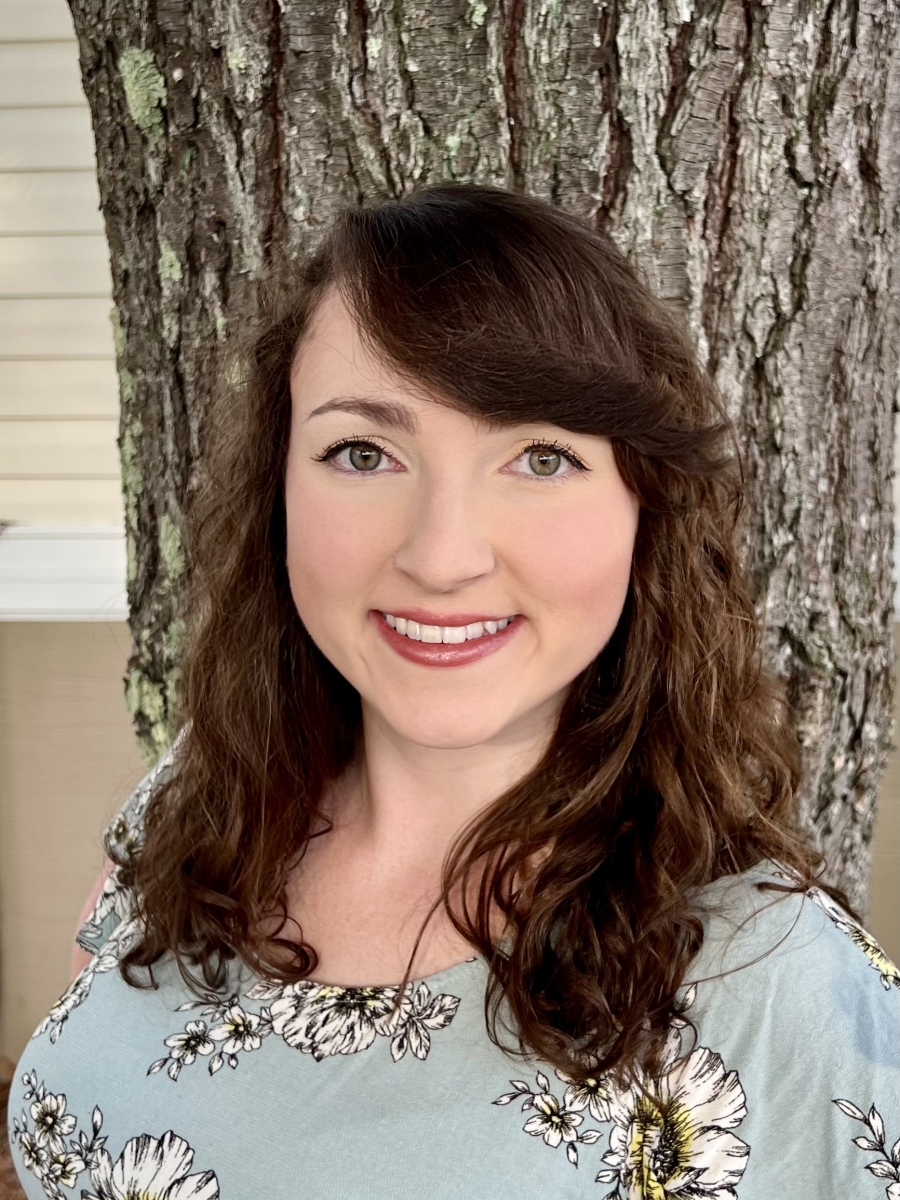
Lindsay Sheek, originally from Clemmons, North Carolina, received her bachelor’s degree in music/vocal performance from High Point University.
After completing her undergraduate degree Sheek worked as an auto claims adjuster at a car insurance company. She quickly realized that she was unhappy and wanted to find a job that was “more fulfilling”. Working with her own counselor, Sheek began searching for clinical mental health counseling programs in North Carolina and ultimately decided to apply to App State.
“I am so honored to have been selected for the Minority Fellowship Award for Master's Addictions Counselors,” said Sheek. “The scholarship has provided me with much-needed aid, and the fellowship has offered numerous opportunities to learn from leaders in the field and further develop my counseling skills and identity.”
After graduation, Sheek plans to pursue licensure as a licensed clinical mental health counselor and licensed clinical addiction specialist. She also would like to return to the Triad area to find work in a drug rehab center, hospital, or counseling center, providing services to marginalized groups and underserved communities.
